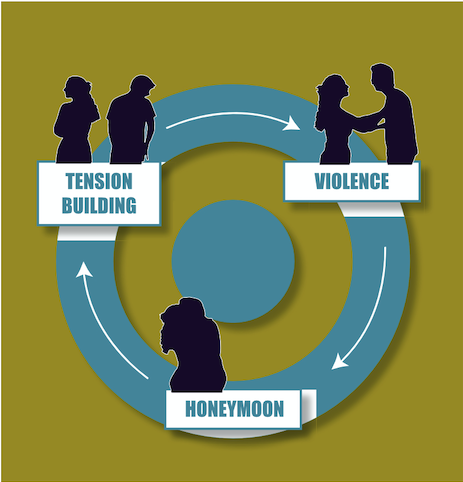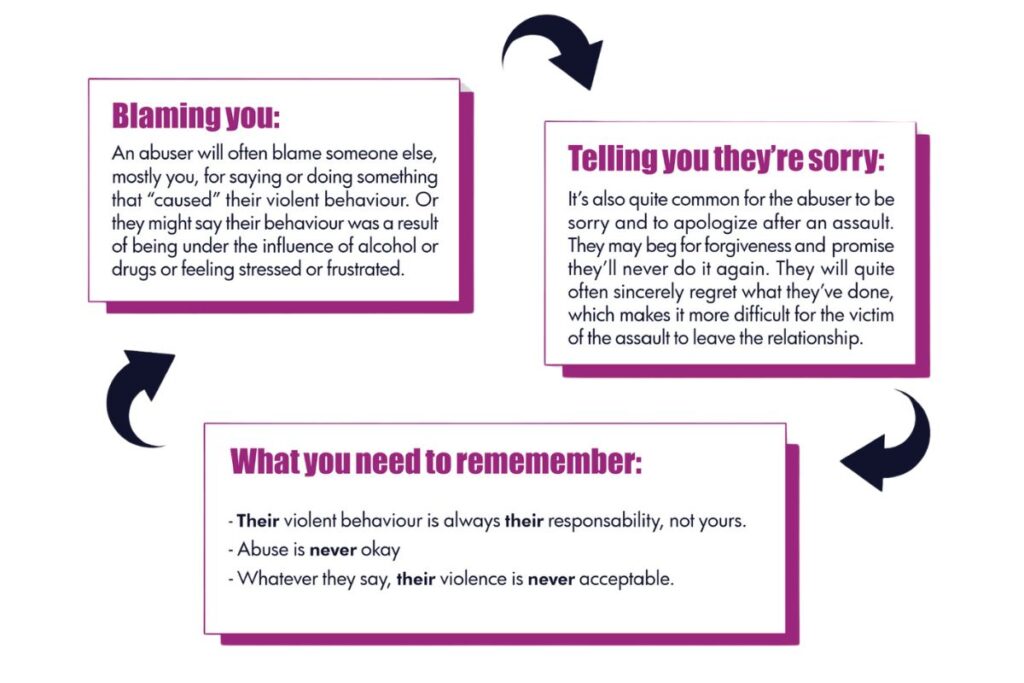Pretend that nothing happened
the cycle of violence
THERE'S NO EXCUSE FOR REPETITIVE VIOLENCE!
Repetition vs true change
Like in the “Testimonial on Jealousy” where she said “he would surprise me with notes and gifts or lavish me in compliments and affection, which felt really sweet and loving”. What do you think of this behaviour?
Can you relate to someone that acts the same way? One minute he/she is yelling or angry and the next acting like nothing has happened?
This kind of behaviour is very common in abusive and violent relationships, and it’s a part of what is called the cycle of violence.
Violent relationships don’t become violent from one day to another and neither do they stay violent 24/7. Violence doesn’t start suddenly; it is a progressive and slow process that wears you out and undermines you little by little.
At the beginning of the relationship the control or abuse can sometimes go unnoticed or happen slowly,
being perceived by the person as signs of affection, such as jealousy as a sign of love and control disguised as being concerned or protective, etc.
As time progresses, alongside these aggressive acts the person can display behaviours, which are also calm and affectionate. This can cause confusion to the person being controlled, who may find themselves trying to change everything they do in order to avoid such abusive behaviour, going so far in blaming themselves and not the person in the relationship that is being abusive.

This is when the abuser initiates aggressive, verbal, physical or sexual abuse, attempting to control and oppress the victim. Some behaviours may include destroying the environment around them, hitting, slamming, humiliating, strangulating, sexual assault or rape.
Some of the feelings the victim may feel can be fear, scared, hurt, seeking protection, angry or vulnerable. During this phase the victim may call the police or try to leave the relationship.

It could seem as though the person has changed
The person experiencing the violence can feel confused and hurt but also relieved that the violence is over. During this phase some behaviours of the victim may include agreeing to stay, feeling happy and hopeful of change or returning back to the abuser.
Both people may feel happy and want the relationship to continue, so they may not acknowledge the possibility that the violence and cycle could happen again.
Over a period of time, there may be changes to the cycle. The honeymoon phase may become shorter, and the tension and violence may increase.



